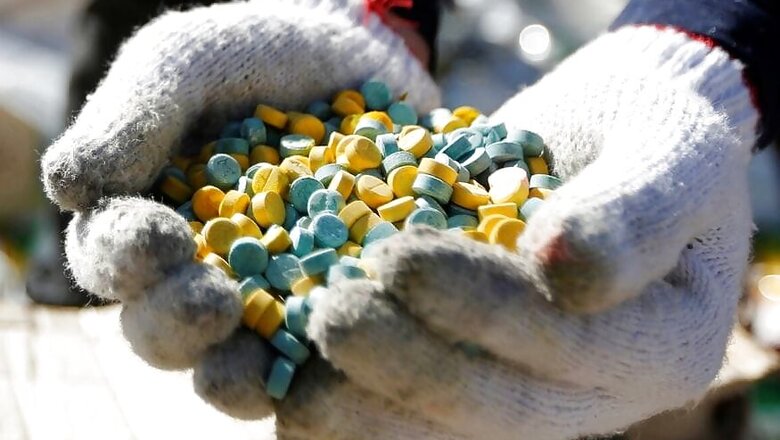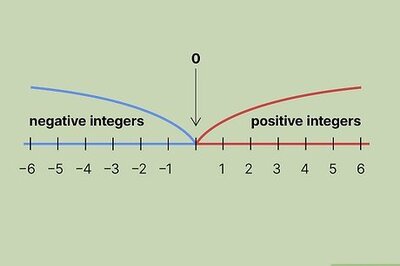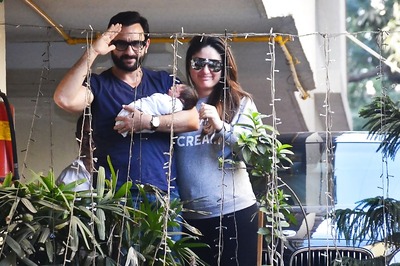
views
Kolkata: Founded 118 years ago in a rented house at Kolkata’s 91-Upper Circular Road -- Bengal Chemicals and Pharmaceuticals Limited has emerged as the only Public Sector Undertaking (PSU) in India which has been manufacturing the currently most sought after anti-malaria drug ‘Chloroquine Phosphate’ since decades.
In its general term, the properties and metabolism pathway of ‘Chloroquine Phosphate’ is the same as of ‘Hydroxychloroquine Sulphate’ – which is in high demand nowadays after being touted as a viable treatment for the coronavirus disease by none other than US President Donald Trump.
Trump even asked India to lift the ban on export of Hydroxychloroquine Sulphate, threatening retaliation if it wasn't done. Later, Prime Minister Narendra Modi partially lifted the ban for supply to US and other countries on a "humanitarian ground".
The managing director of Bengal Chemicals and Pharmaceuticals Limited, PM Chandraiah says, “We have been producing Chloroquine Phosphate for decades. It has the same components/composition as Hydroxychloroquine Sulphate, as per experts.”
Then why has the company applied to the the Drug Controller General of India for registration of its
Hydroxychloroquine formulation? Chandraiah answers.
“There are some government guidelines and we have to follow those rules. The Indian Council of Medical Research (ICMR) has recommended Hydroxychloroquine Sulphate and we have to maintain the domain."
He said he was hopeful that in the coming two to three days, the company would get the permission to produce Hydroxychloroquine Sulphate.
“If we get the registration, then we will be able to produce 10 lakh tablets per day. Production of Hydroxychloroquine Sulphate won’t be any problem for us but the only issues is procuring the raw materials,” he says.
Chandraiah says the price of the raw material required to produce chloroquine phosphate -- which previously cost Rs 2,000 per kg -- had increased exorbitantly.
"It will probably be the same case with Hydroxychloroquine Sulphate raw materials," he says.
However, he has a solution as well -- "There is something called the Pharma Pricing Policy and we want the government to procure the raw material directly from the manufacturers and supply it to us for smooth production.”
Market survey shows that the raw material for Hydroxychloroquine Sulphate presently shoots up to Rs 40,000 per kg from the previous rate of Rs 1,600 to 2,000. "It is like that only(sic)," he responds.
He says that procuring the raw material amid the current pricing remains a big challenge and that the government should help drug producers in this matter.
A market expert who deals with pharma companies also confirmed Chandraiah's plight -- “Pricing of raw materials is a major concern now. The raw material for Hydroxychloroquine Sulphate has increased 20 times from Rs 1,600 per kg."
The expert said the cost of a single mask cost around 80 paisa to Rs 1 but was being sold in the market at a price of Rs 18 to Rs 20. "Similarly, 50 ml of a hand sanitiser costs around Rs 200. This problem is a fact and the government should do something about it."
Chloroquine was first developed by Bengal Chemicals in 1934 – much before India attained independence.
The company has seen many ups and downs. After 50 years of losses, the company posted a profit of Rs 4 crore in the fiscal year 2016-17; more than Rs 10 crore in 2017-18 and nearly Rs 25 crores in 2018-19.
It produces at least 70 per cent of pharmaceuticals and 30 per cent of home products, available only in government establishments.
It is also one of the first Indian companies to manufacture the anti-snake venom serum.
In 1892, Bengali philanthropist Prafulla Chandra Ray founded Bengal Chemical Works with Rs 700. He had done so to inculcate a spirit of entrepreneurship among the Bengali youth.


















Comments
0 comment